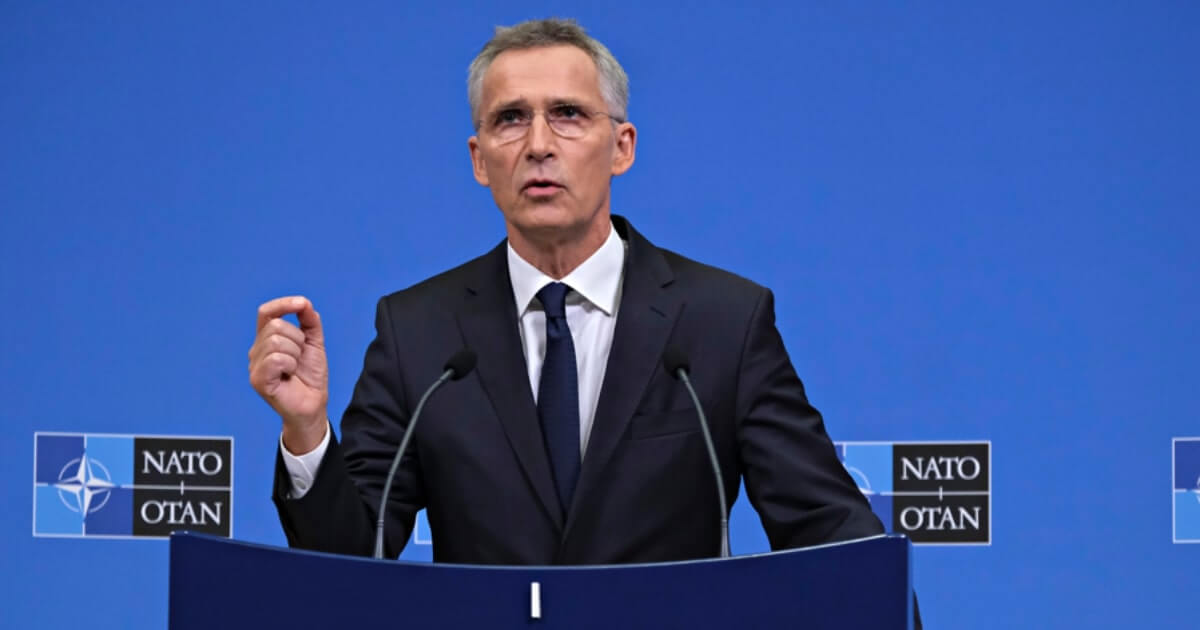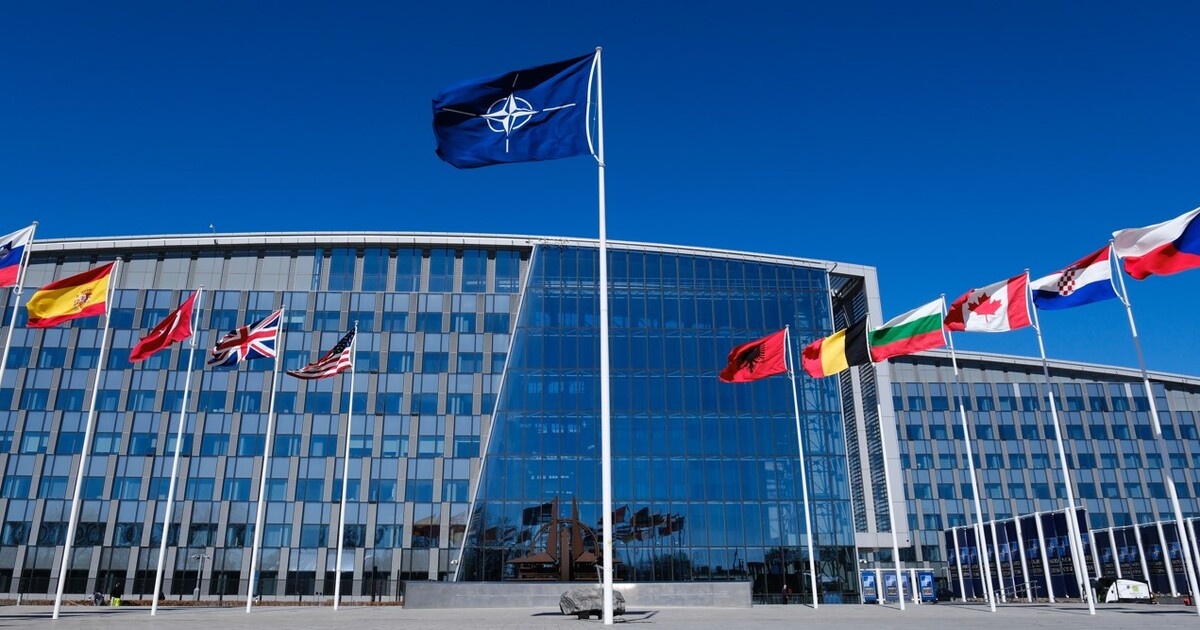Announcing: The Stoltenberg Prize for NATO Resuscitation
The Western alliance was long considered moribund. No longer. It is not even a secret what – or rather who – did the trick.
April 6, 2024

A Strategic Assessment Memo (SAM) from the Global Ideas Center
You may quote from this text, provided you mention the name of the author and reference it as a new Strategic Assessment Memo (SAM) published by the Global Ideas Center in Berlin on The Globalist.
After 1990, NATO seemed more or less an afterthought to the existence of most people living in Western Europe.
Hooked to the “peace dividend”
After the Soviet Union crumbled, the entire emphasis in most of the West was on harvesting the “peace dividend.”
In practice, that meant shrinking the military, and using the resulting budgetary savings for an expansion of the social welfare state.
The case of Germany is particularly revealing. While the total personnel of the German Bundeswehr amounted to just under 459,000 in 1990, it is now down to just around 181,000. That is equal to the population of Potsdam, about the 40th largest city in Germany.
No response to Putin’s saber-rattling for a long time
To his credit, Vladimir Putin cannot be accused of hiding his intention to pursue a course of military aggressiveness. He made this unmistakably clear as early as his 2007 speech to the Munich Security Conference.
In the following year, his attack on Georgia in 2008, and subsequently his annexation of Crimea in 2014, underscored that he moved from expansionist imperial rhetoric to brutal reality.
Europe’s evasiveness
Even then, most Western Europeans, with German politicians in the lead, kept their collective head firmly buried in the sand. Warnings from Poland and the Baltic counties were simply ignored.
For instance, empty hopes that Putin would somehow restrain himself triumphed over any acknowledgment of reality. Not even when Putin had let it be known that his imperial appetite included vital parts of the EU did that change.
Germany’s SPD, in particular, will always see moves toward self-defense as risking “escalation” with Russia.
While France plays loose cannon…
The height of European arrogance and brainlessness, of course, occurred in November 2019, when Emmanuel Macron, normally considered a sharp thinker, declared the Western alliance “brain-dead.”
Of course, his remark was part of Macron’s hifalutin stratagem to advance the cause of Europe’s “strategic autonomy.”
Macron too enamored with his own language
To date, this concept has hardly grown beyond the sphere of lofty rhetoric. That isn’t really surprising, as it is largely a transparent ploy for France establishing itself as the supremo at the top table in Europe.
Now that the UK, the continent’s other nuclear power and other European member of the UN Security Council, has left the EU, Macron obviously just could not resist the temptation.
… Germany is unreliable
Meanwhile, successive German governments practiced cynicism galore. They paid no more than lip service to the commitment to spend 2% of GDP on the country’s defense.
That goal had been agreed for each country by the alliance’s members at the organization’s Riga summit in 2006.
Little wonder, then, that German tanks, jet fighters and submarines are mostly in non-working order. This is quite astonishing – and, literally, utterly self-defeating for a nation that has a global reputation to be “Mr. Reliable” when it comes to the quality of its machinery.
How to wake ‘em up?
Under such near morose circumstances, and given most old EU countries’ aversion to spending on their own defense, there was a very real question as to whether their self-defense (and hence survival) instinct would ever come into play.
The winning idea the NATO staff came up with is a smart PR maneuver – issuing an annual prize in order to turn around the Brussels body’s sagging fortunes by resuscitating the defensive spirit of the alliance.
Introducing: The Stoltenberg Prize for NATO Resuscitation
The Norwegian government was a willing participant in turning the idea into reality. To commemorate the long-time service of Jens Stoltenberg, a fellow Norwegian, as NATO’s Secretary General, it has established “The Stoltenberg Prize for NATO Resuscitation.” It will be first awarded in 2025, after Stoltenberg has left office.
The Prize will be awarded annually to the person or organization that has done the most in the preceding year to resuscitate NATO.
Vlad, the great unifier of the West
The only problem is that there isn’t much room for speculation as to who the 2025 winner will be. The winner will be Vladimir Putin, hands-down.
The Russian President has managed to accomplish the unthinkable. With all his conniving ploys of baseless threats and deceit, Putin has managed to revitalize the Western alliance in a manner long deemed impossible.
In soccer parlance, not least with triggering Finland and Sweden to apply for NATO membership, Mr. Putin has scored what must be soccer history’s biggest own goal. This is true even while the world is still waiting with bated breath as to whether Putin will pull the trigger on continuing his invasion of Ukraine.
Who is really inside Putin?
Considering the interests of Western powers (and especially Western intelligence services), a tantalizing thought emerges: Have NATO hardliners perhaps succeeded in taking over the body and the mind of Vladimir Putin?
Have they managed, in short, programmed Putin to do “whatever it takes” (in the famous words of Mario Draghi on defending the euro) to resuscitate the Western alliance? It surely seems so.
The West’s Bond-like programming of Putin
That, of course, would be an amazing feat of foreign ops on the part of the West. Until now, such cunning actions – outside of James Bond movies – rather seemed the domain of the Russian intelligence services.
It stands to reason that Russia’s own intelligence services, despite occasional successes, are no longer very intelligent. They have become rather transparent in turning themselves into overseas killing operations.
The end: From Putin to Trump?
But none of that will faze the upcoming winner of the introductory Stoltenberg Prize for NATO Resuscitation.
The only question is whether, in 2026, Putin will find a worthy successor in Donald Trump as the second recipient of the Stoltenberg Prize.
That largely depends on two factors: Will Trump make it once again to the White House? And, if so, will he legitimately chide the Europeans into spending more on defense – but resist from turning himself into Russia’s most successful sleeper agent ever by having the United States exit from NATO.
Editor’s note: In case you are wondering whether or not this is an admittedly belated April 1 contribution, don’t wonder.
Takeaways
Given most old EU countries’ aversion to spending on their own defense, there was a very real question as to whether their self-defense (and hence survival) instinct would ever come into play. Enter Putin and his warmongering.
To commemorate the long-time service of Jens Stoltenberg as NATO’s Secretary General, the Norwegian government has established “The Stoltenberg Prize for NATO Resuscitation.”
The Russian President has managed to accomplish the unthinkable. Putin has managed to revitalize the Western alliance in a manner long deemed impossible.
In soccer parlance, not least with triggering Finland and Sweden to apply for NATO membership, Mr. Putin has scored what must be soccer history’s biggest own goal.
While the total personnel of the German Bundeswehr amounted to just under 459,000 in 1990, it is now down to just around 181,000. That is equal to the population of Potsdam, about the 40th largest city in Germany.
Have NATO hardliners programmed Putin to do “whatever it takes” (in the famous words of Mario Draghi on defending the euro) to resuscitate the Western alliance? It surely seems so.
The only question is whether, in 2026, Putin will find a worthy successor in Donald Trump as the second recipient of the Stoltenberg Prize.
A Strategic Assessment Memo (SAM) from the Global Ideas Center
You may quote from this text, provided you mention the name of the author and reference it as a new Strategic Assessment Memo (SAM) published by the Global Ideas Center in Berlin on The Globalist.


